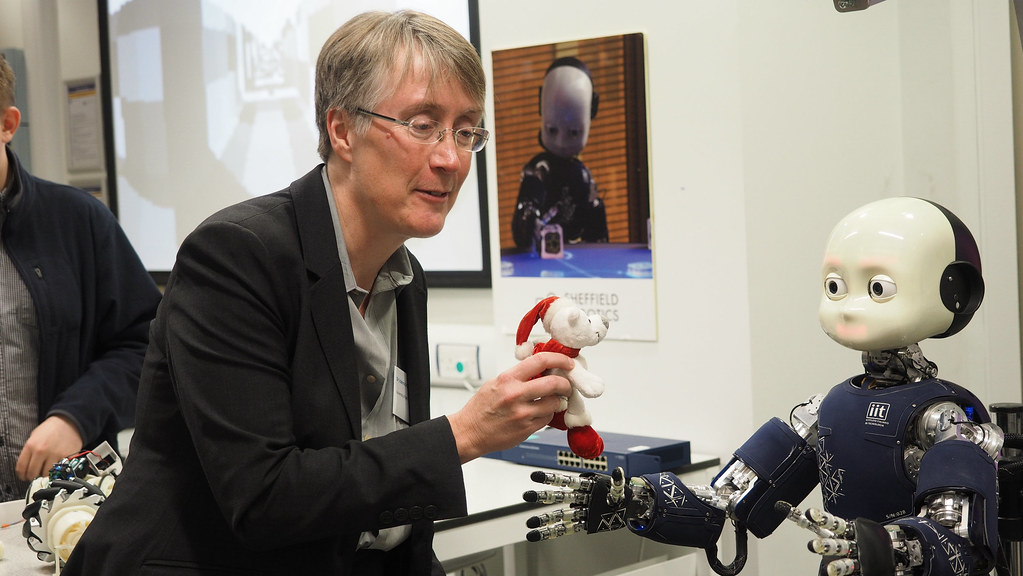Dr Bryson won the award for individual contribution to the advancement of AI Ethics at the CogX London 2017 conference and awards on June 20.
Although she was out of the country for the ceremony she kept up with the action via her PhD students who attended and collected the award on her behalf.
She said: “Obviously I'm very flattered to have won, in fact I was surprisingly excited as the award ceremony started.
“It's fantastic my PhD students could be there and that with Twitter it was almost like being in the room, hearing about it real-time. Even though it's my full-time job to think about it, I can't believe how much Computer Science (not just AI!) is changing the human experience.”
Dr Bryson has been focusing on AI, computing and ethics for around 10 years after realising that her background put her in a good position to study and contribute to an area which is becoming more and more important in everyday life.
She said: “To be honest I am most interested in human and animal intelligence, but I was an extremely good programmer, so I thought that if I combined my interest with what I was good at I'd have a better chance of getting to attend and work in top universities.
“What drew me into AI ethics was in fact my psychology background -- I was amazed that people were telling me it would be unethical to unplug a non-functional human-shaped robot that I was trying to program -- when it was already not plugged in! I thought that was a strange behaviour. But then around 2007, since I came to Bath, I realised that AI was having so much impact in the world that this ‘bug’ in human thinking could have serious consequences, so I started putting more effort into research and publication. Then just last year when I was speaking to EU and OECD panels about AI and its impact on work, I realised that almost no one else has my combination of both expertise in AI and in human cognition and social behaviour, including cultural differences in cooperation and investment in public goods. All of these things are critical for understanding how AI influences behaviour. So now I am working on AI ethics almost full-time.”
Earlier this year Dr Bryson, working with colleagues at Princeton University, published a major paper on how machine learning can pick up human biases and prejudice from ordinary human language.
Dr Byson wanted to thank a number of people for the support they have given her.
She said: “All of my past and present PhD students and heads of department have been very tolerant and supportive of how much I travel and work on these issues -- my PhD students have helped me understand the issues, also many of my undergraduate and master’s dissertation students. I'm still in contact with some who have graduated years ago. There are a lot of great people out there though that you have no contact to who quietly do research on who is doing research. They come up to you after a talk and say shyly "I was the person who found you" and you don't know how to thank them. Similarly I'm not sure who to thank for nominating me for this award, though I have a couple guesses that were both involved in the conference's organisation. Obviously I thank the organisers!
“I'm really grateful that as long as you pay your way by teaching and writing occasional mainstream papers, British universities in general and Bath Computer Science in particular will support blue-sky research. We can never tell what will matter, but we can notice what we don't understand and pursue it. That's a major part of what academia is for.”

